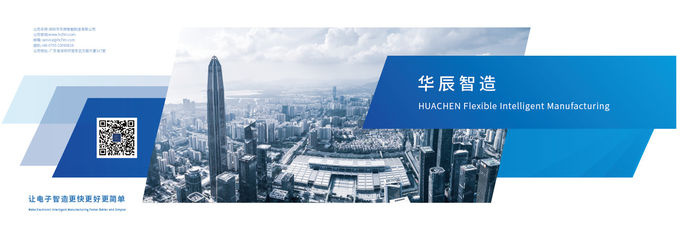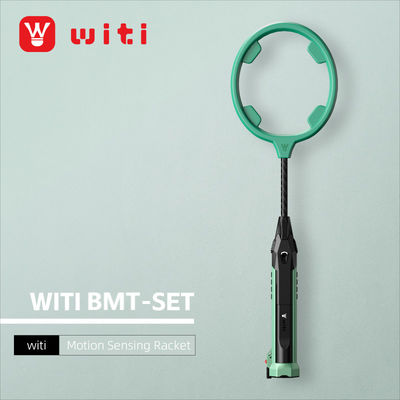The development and investment opportunities in the digital era of industries
2022-06-16

I am very honored to receive an invitation from the Shenzhen Industrial Internet Industry Association
and Tencent Cloud to be a special guest for the "Smart Manufacturing and Industrial Internet Series Public
Welfare Broadcast Thirteenth Session" on Monday, June 13th at 7 pm. The topic of the session is "
Development and Investment Opportunities in the Industrial Digital Era". In the Industry 4.0 era, the
Internet is integrated into the development of industries and enterprises, and the digitalization of the
entire chain from business, production, procurement, research and development to products greatly
enhances collaborative efficiency. The following is a selection of the essence of the content shared
in this session for discussion and exchange. If there is any mistake, please kindly correct me.
(Some of the images in this article are from the internet. If there is any infringement, please
contact us privately and we will delete them.)
Industrial Internet
Definition: Industrial Internet is a new generation of infrastructure, application models, and industrial
ecology that deeply integrates information and communication technologies with industrial economy.
It comprehensively connects people, machines, objects, and systems, and constructs a new manufacturing
and service system that covers the entire industry chain and value chain. It provides a pathway for the
digitalization, networking, and intelligence of industries and plays a crucial role in the fourth industrial
revolution.
SaaS Layer: It includes vertical industry applications, process applications, and data analytics-based
applications. Industry applications are implemented through software for research and development,
information management, and production control. They are the core elements in helping companies achieve
digital value.
PaaS Layer: It includes industrial cloud platforms for collaborative research and development, collaborative
manufacturing, information trading, and data integration.
IaaS Layer: It includes cloud computing infrastructure such as servers, storage, networks, virtualization, etc.
Edge Layer: It includes intelligent production equipment, intelligent terminals at production sites,
embedded software, and industrial data centers.
Security Layer: The security system permeates all the layers mentioned above and is an important support
and guarantee for the industry.
Industrial Internet —— SaaS (Applications)
First category: Equipment Product Management (Equipment Interconnection): It provides asset
management services for industrial equipment and products. It covers all industries and is a prerequisite for
deep application.
Second category: Business and Operational Optimization (Enterprise Interconnection): It integrates OT
(Operational Technology) data and IT (Information Technology) data to support traditional business operations
and optimization.
Third category: Social Resource Collaboration (Industrial Interconnection): It combines industry, finance,
and services to integrate resources from various parties in the industrial chain and value chain. It aims to
facilitate business transformation, innovation in business models, and the creation of new competitive models.
Current Application Status: Currently, industrial internet applications are mainly focused on the first and
second categories, while the transformation of enterprises based on industrial internet is still in the early
exploration stage.
Industrial Internet —— PaaS(Platform as a Service)
Definition: It refers to the process of formalizing, softwareizing, and modularizing a large amount
of industrial technology principles, industry knowledge, basic processes, model tools, etc., and packaging
them into reusable components.
Sources: Physical equipment, process logic, research and development tools, production processes.
Categories: Mechanistic models and big data analysis models.
Development: All of these technologies, knowledge, experiences, methods, and processes will be solidified
into digital models through different programming languages and programming approaches.
Architecture: It primarily exists in two ways. One is the monolithic architecture, which involves directly
migrating a complex and large software system to the platform. The other is the microservices architecture,
where the traditional software architecture fragments into functional units and presents as microservices
in the industrial PaaS platform, forming a pool of microservices. Over time, the monolithic architecture
continuously migrates towards the microservices architecture.
Value: State awareness, real-time analysis, scientific decision-making, precise execution.
Industrial Internet —— IaaS(Cloud Infrastructure)
Definition: Based on technologies such as virtualization, distributed storage, parallel computing, and
workload scheduling, the IaaS layer enables the pooled management of computer resources such as
networking, computing, and storage. It allows for elastic allocation of resources based on demand while
ensuring the security and isolation of resource usage, providing users with cloud infrastructure services.
Core Value: Data storage and cloud computing.
Architecture Components: a) Servers b) Storage c) Networking d) Virtualization.
Industrial Internet —— Edge (Devices)
Device Access: Device access products can be further classified into the following categories: data
acquisition modules, such as sensors; RTU/PLC/DCS/IPC/embedded systems; robots/numerical
control machines/specialized intelligent devices or equipment; and RFID (Radio Frequency Identification)
equipment for material identification.
Protocol Conversion: Industrial communication networks have various interface types, complex
protocols, and lack compatibility. Protocol conversion is performed using industrial gateways, which
include devices for serial-to-Ethernet conversion, protocol conversion between different industrial
fieldbuses, and gateways that convert fieldbus protocols to Ethernet (TCP/IP) protocols.
Network Transmission: This involves the network connection and data transmission for industrial
field devices and intelligent products/equipment. Devices in this category include industrial switches,
industrial routers, industrial repeaters, industrial bridges, and DTUs (Data Transfer Units).
Edge Data Processing: This primarily includes edge computing software, supporting databases, and
related modules.
Industrial Data Acquisition Security: In current industrial data acquisition systems, data encryption and
secure transmission are achieved using industrial firewalls and industrial gateways. These products
ensure data security by preventing data leakage, interception, or tampering during data acquisition
and transmission processes.
Industrial Internet —— Security (Protection)
Device Security: Deploy security measures from both the aspects of operating system/application
software security and hardware security. Available security mechanisms include firmware security
enhancement, protection against malicious software, device identification and access control,
vulnerability patching, and more.
Control Security: Implement security mechanisms such as protocol security reinforcement,
software security reinforcement, protection against malicious software, patch upgrades, vulnerability
patching, security monitoring, and auditing.
Network Security: This includes various protective measures such as optimized network architecture,
boundary security protection, access authentication, communication content protection, communication
device protection, security monitoring, and auditing. It aims to establish a comprehensive network
security protection system.
Application Security: Provide protection for both industrial Internet platform security and industrial
application program security. For industrial Internet platforms, security measures may include security
auditing, authentication and authorization, protection against DDoS attacks, and more. For industrial
application programs, it is recommended to implement security protection throughout the entire lifecycle.
This involves code auditing during the development process and providing training to developers to
minimize vulnerabilities.
Data Security: Employ multiple protective measures, including explicit data usage, data encryption,
access control, business isolation, access authentication, data anonymization, and more. These
measures should cover all stages of the data lifecycle, including data collection, transmission,
storage, and processing.
Thank you to all supporting organizations
Guidance Units: Shenzhen Industrial and Information Technology Bureau, Yantai Industrial and
Information Technology Bureau Joint Initiators:
Research Institutions: University of Chinese Academy of Sciences, Tongji University, Peking University,
Tsinghua University, Anhui University of Engineering, National Industrial Information Security Development
Research Center, China Academy of Information and Communications Technology, China Industrial Internet
Research Institute, China Electronics Information Industry Development Research Institute, China Electronics
Technology Standardization Institute, China Synergy Lab, China Electric Power Industry Association Industrial
Internet Ecological Committee, Tencent Research Institute, Shenzhen Smart Industrial Internet Research
Center, Wuhan Industrial Informationization Center, Huaxi Hope Education Group
Association Alliances: China Industrial Internet Development Alliance, Industrial Internet Industry Alliance,
China Communications Industry Association, China Urban Health and Environment Association, China Industrial
Software Industry Development Alliance, Guangdong Industrial Internet Industry Alliance, Guangdong Automation
Society, Shenzhen Industrial Federation, Shenzhen Industrial Internet Industry Association, Shenzhen Industrial
Internet Alliance, Qingdao Industrial Internet Industry Alliance, Shanghai Industrial Internet Association, Beijing
Industrial Internet Alliance, Chongqing Industrial Internet Alliance, Wuhan Industrial Internet Alliance, Yantai
Industrial Internet Association, Industrial Internet Platform Innovation Cooperation Center, Industrial Internet
Industry-Education Integration Innovation Center, Sino-German Intelligent Manufacturing Industry Association
Cross-platform Participants: Tencent, Huawei, Haier Kaos, Industrial Fulian, XCMG Hancloud, Pactera, Blue Zoo
Operating Entity: Shenzhen Industrial Internet Industry Association

-
2023-08-15
-
2023-06-28
-
2023-06-14
-
2023-04-02


